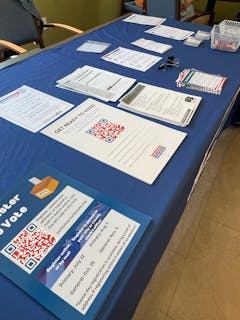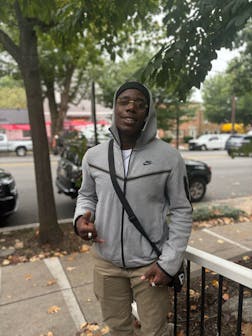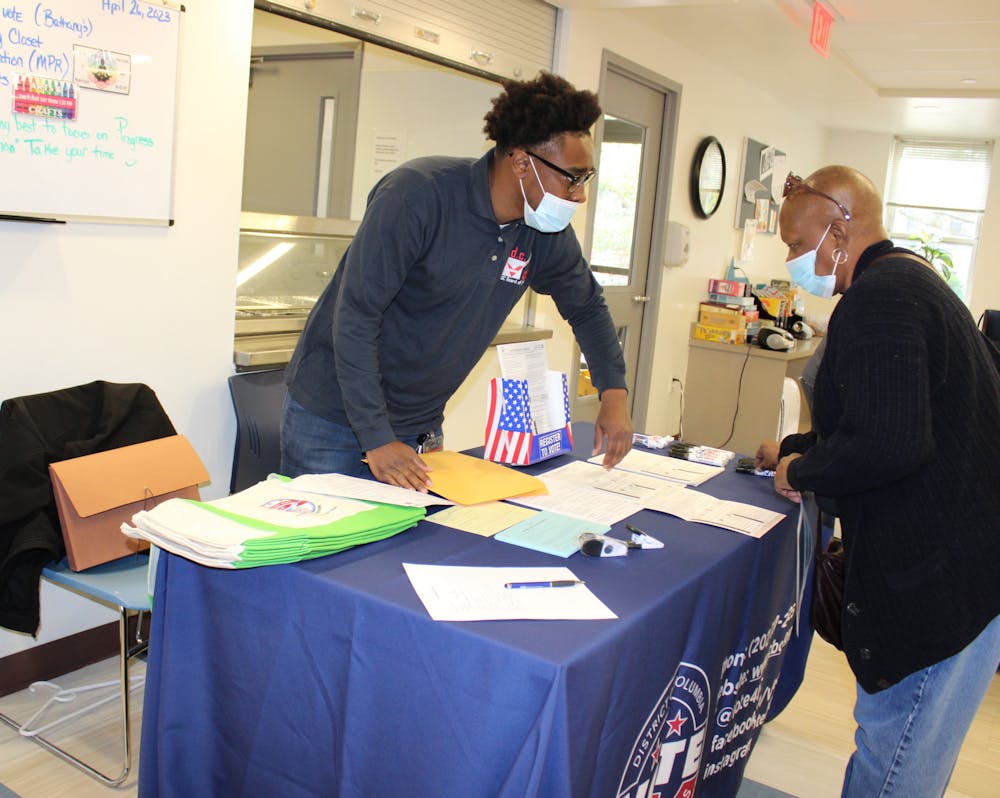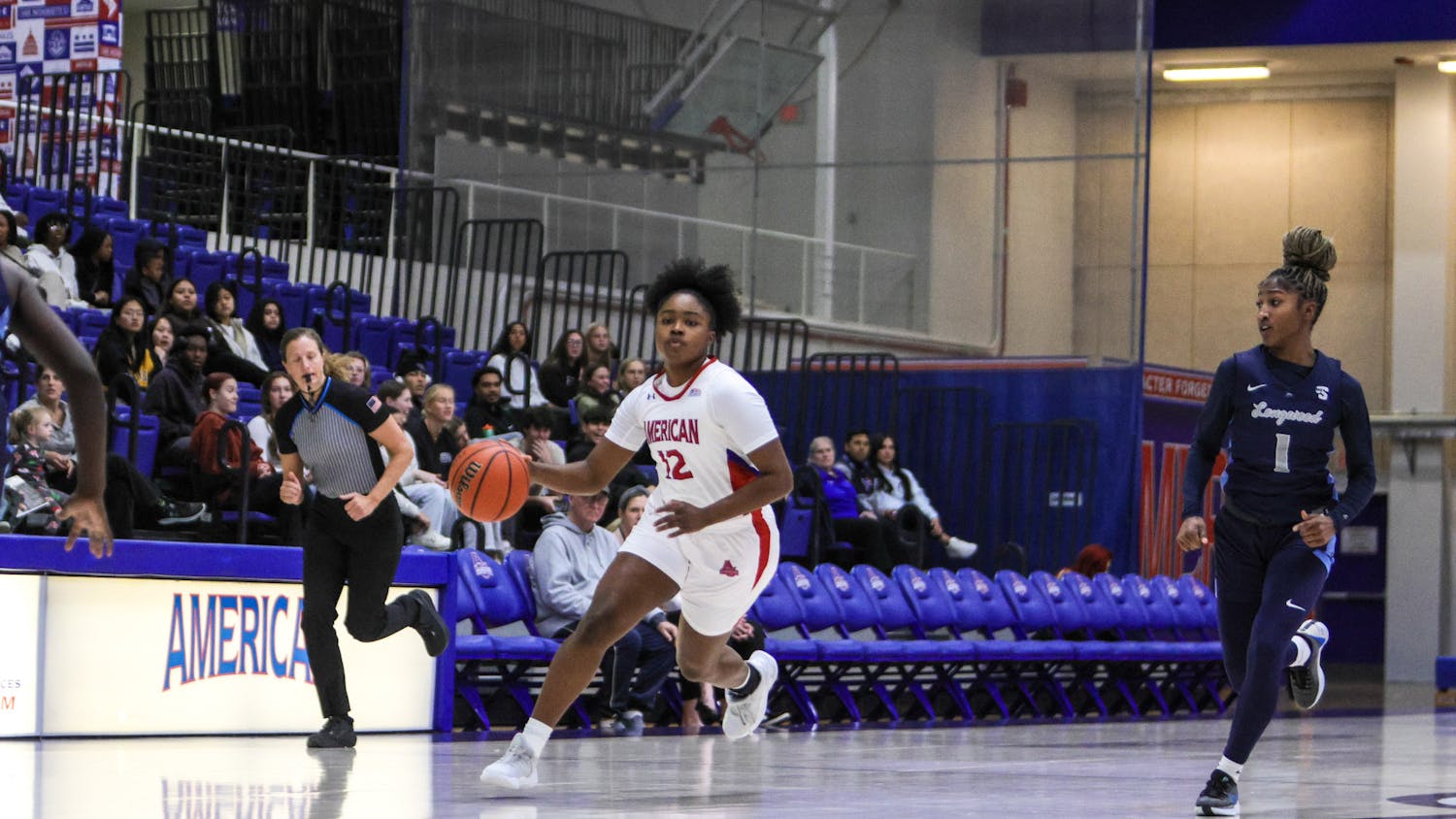Housing and shelter advocates across D.C. are working to close the voting gap for homeless individuals in the month leading up to the presidential election, ensuring that everyone has a chance to fill out a ballot.
Those who live in D.C. do not need a “permanent residence” to vote. Instead, those without permanent housing can list P.O. boxes, homeless and other advocacy shelters or a friend or family member's home when registering. According to the District of Columbia Board of Elections, citizens can use an occupancy statement from a homeless shelter as proof of address if they utilize same day voting and registration.
Despite these laws, only 10 percent of homeless people vote in elections each year, partially due to a lack of resources and attention from politicians, says Courtney Cooperman, manager of the Our Homes, Our Votes campaign for the National Low Income Housing Coalition.
“When elected officials are thinking about policymaking, they're not thinking about the housing needs of the lowest income renters and people experiencing homelessness,” said Cooperman.

The Our Homes, Our Vote non-partisan campaign partners with housing advocates, service organizations, tenant leaders and others to help register and inform homeless and other low-income individuals about how they can exercise their right to vote.
In previous election cycles the organization offered webinars on voting and worked on engaging candidates in the affordable housing crisis. These efforts were recognized nationally in 2020 when National Low Income Housing Coalition questions on affordable housing were utilized in the Democratic primary debates.
Cooperman said that her work ultimately is about “reminding people that civic engagement isn't just about elections, but it's about holding elected officials accountable and building that long term political will for housing justice.”
Chaquita Goode, the manager of wellness services and the vocational center at the N Street Village, a women’s shelter, said that for most homeless individuals civic engagement is not at the forefront of their mind or priorities.
“The last thing some of our women are thinking about is voting…” Goode said. “They think about where my next meal is coming from. Where am I going to sleep tonight?”
Despite these concerns, Goode continues to hold on-site voting drives and informational sessions for guests at N Street. Goode helped register N Street guests for the February primaries and invited a guest from the D.C. Board of Elections to help people learn how to use voting machines. That same speaker will return in October to register more women and, on the day of the election, Goode plans to organize vans to bring the women to voting centers.
“I’m always hopeful that there will be some type of change,” Goode said.
Jesse Rishel, who said he has found himself homeless for a second time, is skeptical of any kind of systemic change. Rishel went to college for journalism and feels that, after reporting for years on the federal government, he’s seen too many faults in the voting system and will not be voting in the election.
“Two party politics divides our country, and it all goes to the same 1 percent in the end,” Rishel said, holding a cardboard sign in the rain which read “Anything helps, God Bless” scribbled in red pen.
Despite the ability to use a shelter ID, Delanta Minor, who has been homeless for a year, said he will also not vote in the upcoming election. He said it's “all a gamble” in the end.
Leigh Stroud, who has been homeless for almost a year after escaping an abusive relationship, wished politicians would pay more attention to low-income housing communities, saying that housing vouchers are often not available to those who need them. Stroud plans to vote for Vice President Kamala Harris in the upcoming election and said same day voter registration makes it far easier for her to cast her ballot.

Sayvon Banks, who has been homeless for 3 years, obtained his Voter ID from Friendship Place.
Sayvon Banks, who has been homeless for three years, was one of the few to receive a housing voucher in late September. He plans to vote in this year’s election and said it was simple to obtain a Voter ID card from the Friendship Place Welcome Center, only 10 minutes from the Tenleytown - AU Metro station.
“No matter who you’re voting for, your vote counts,” Banks said.
This article is part of our 2024 contribution to the D.C. Homeless Crisis Reporting Project in collaboration with other local newsrooms. The collective works will be published throughout the day at bit.ly/DCHCRP.
This article was edited by Mackenzie Konjoyan, Maya Cederlund, Tyler Davis and Abigail Turner. Copy editing done by Luna Jinks, Ella Rousseau and Sabine Kanter-Huchting.





